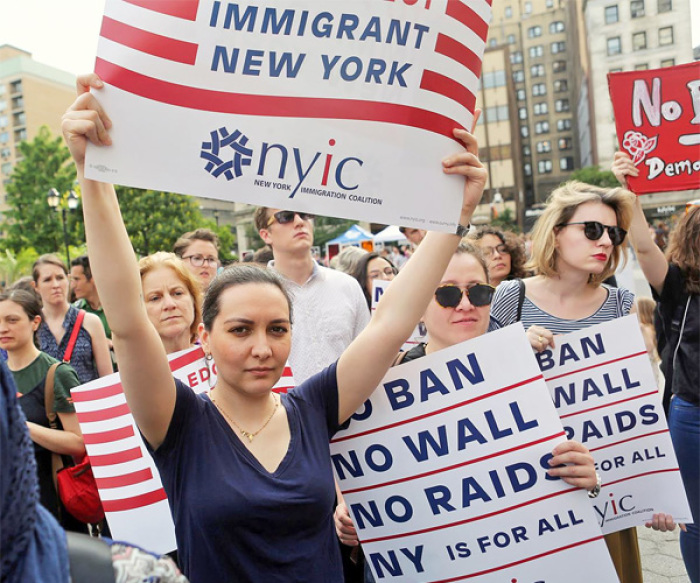Justice Kennedy Warns Trump to Respect Religious Freedom in Travel Ban Case

While Supreme Court Justice Anthony Kennedy sided with the majority to uphold the Trump administration's controversial travel ban, he also warned against violating religious liberty.
On Tuesday, the high court ruled 5-4 in Trump v. Hawaii that President Donald Trump had the constitutional right to implement a travel ban on a few nations, mostly with majority muslims, over national security concerns.
In a two-page concurring opinion, Justice Kennedy put forth a "further observation" regarding "the statements and actions of Government officials" that are "not subject to judicial scrutiny or intervention."
"The oath that all officials take to adhere to the Constitution is not confined to those spheres in which the Judiciary can correct or even comment upon what those officials say or do," wrote Kennedy.
"Indeed, the very fact that an official may have broad discretion, discretion free from judicial scrutiny, makes it all the more imperative for him or her to adhere to the Constitution and to its meaning and its promise."
Kennedy then commented that the First Amendment allows for the freedom of religion and that it "is an urgent necessity that officials adhere to these constitutional guarantees and mandates in all their actions, even in the sphere of foreign affairs."
"An anxious world must know that our Government remains committed always to the liberties the Constitution seeks to preserve and protect, so that freedom extends outward, and lasts," concluded Kennedy.
In addition to Kennedy, the 5-justice majority included Justices Samuel Alito, Clarence Thomas, Neil Gorsuch, and Chief Justice John Roberts, who authored the majority opinion.
"The Proclamation is expressly premised on legitimate purposes: preventing entry of nationals who cannot be adequately vetted and inducing other nations to improve their practices. The text says nothing about religion," wrote Chief Justice Roberts.
"Plaintiffs and the dissent nonetheless emphasize that five of the seven nations currently included in the Proclamation have Muslim-majority populations. Yet that fact alone does not support an inference of religious hostility, given that the policy covers just 8% of the world's Muslim population and is limited to countries that were previously designated by Congress or prior administrations as posing national security risks."
The decision was denounced as justifying an anti-Muslim policy by many progressive and civil libertarian groups, as well as the evangelical group World Relief.
"Though the court may have found these restrictions to be lawful, that does not necessarily mean they are right or just," said World Relief President Scott Arbeiter in a statement released Tuesday.
"A person's religious tradition should not disqualify them, explicitly or implicitly, from being considered for a visa to enter the United States."
Other groups, like the conservative American Center for Law and Justice, have hailed the decision as a victory for national security efforts.
"The decision by the Supreme Court reflects what we have argued from the very start – the Proclamation is squarely within the scope of Presidential authority and represents a tremendous victory in ongoing efforts to defend and protect America," stated the ACLJ.
"The President must be permitted to take the actions necessary to safeguard this nation and we're delighted that the Supreme Court found the Proclamation to be constitutional."




























